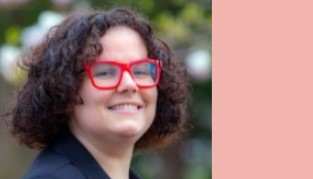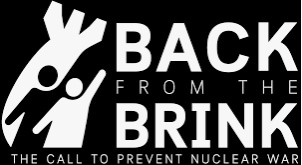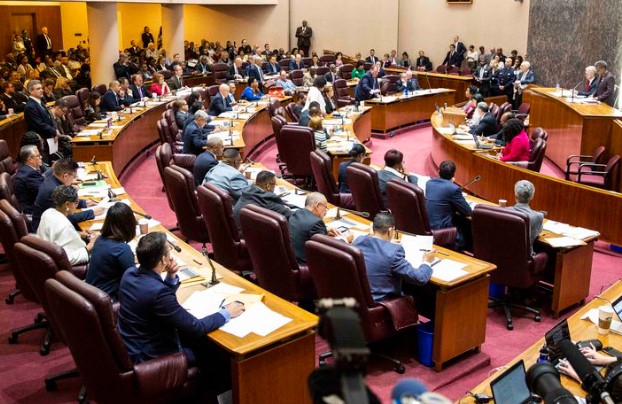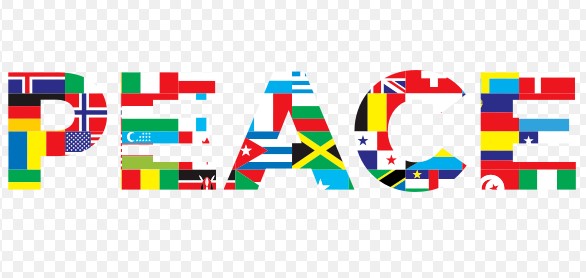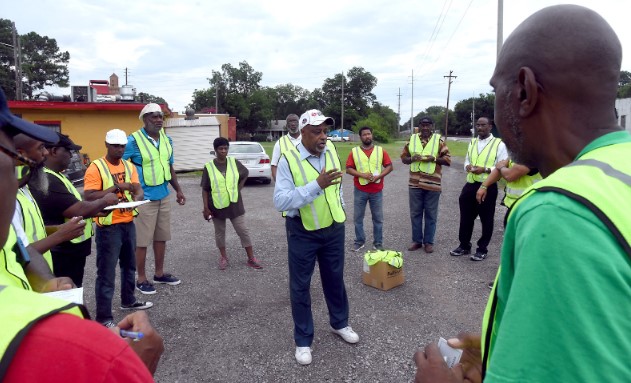by Liz Bajjalieh, CAPA Student Network Director |
Even as a little girl I couldn’t escape it: what it means to be silenced.
Navigating the United States when you’re a Palestinian of the Diaspora is a difficult, complex experience. My first time I learned I was Palestinian was in the 6th grade, when my elementary school had a “culture day,” in which students could go on a stage in front of the school and talk about their ancestral heritage.
Growing up, I wasn’t really taught that I had much of any cultural background outside of being “American” or “Catholic,” and occasionally Mom brought up that we’re Irish. But when I brought up culture day to my parents, for the first time in my life, Dad brought up a new place that his family came from: Palestine.
I was fascinated. What was this mysterious Palestine floating within me? Ireland I had known existed since the first time I saw Saint Patrick’s Day on my pre-school calendar, but this gorgeous sounding Middle Eastern place was new, and caught my imagination. Until then, I hadn’t even known that “Bajjalieh” was a Palestinian last name. I’d thought my grandfather invented hummus.
A whole new part of myself opened up to the world.
I just had to do some kind of presentation on my family’s heritage for culture day. My parents gave their full support and resources. Dad pulled out my great-grandmother’s wedding dress, a beautiful thobe with curling red tatreez. When I spun around, it twirled like a flower recently bloomed.
But when I proposed giving a speech on my Palestinian family history and identity to the school, I got a pretty quick answer: no. You can’t do that performance. I wasn’t told why; I wasn’t given space to protest.
I was shocked and confused. I just wanted to show off this place my grandfather came from and dance around in my great grandmother’s dress. I didn’t understand; what made me different? Why wasn’t I worthy of performance? Had I done something wrong, was I not good enough?
It took action from my mom to reverse this. After I’d told her what the school had done, she was furious, and she sent an email straight to the principal. “Why won’t you let my daughter perform? Is it because you don’t like her? I don’t think so. This is discrimination. It can’t be allowed.”
My mom’s email was enough to make the school cave, but there was a stipulation: I had to call it “the Palestinian Territories,” not “Palestine.”
So, therein was the compromise. I was allowed to take part in culture day, but only as a person from a half-real “territory,” not a historic place rich with centuries of indigenous Palestinian heritage.
I’m glad I was allowed to perform. But it took work, it took a fight from my white Irish-American mom to get me on that stage. (And I have a feeling that things would have gone differently if my brown, Palestinian-American dad had sent that email). My mom had to make clear that I exist beyond a political controversy.
I wasn’t hoping to march into the auditorium and deliver a speech on concrete walls or divided highways. I wasn’t asking to go on stage to demand accountability for Israel’s apartheid. I didn’t even know what that word meant. I just wanted to twirl in my grandmother’s flowery thobe. But that was too much for the school.
Even the notion of a little girl celebrating her Palestinian ancestry was a threat. It was going too far. Even at that young age, I was taught that my truth, my existence, is a battlefield.
Despite that being way back in 2005, I still face moments like this today. I’ve faced discrimination from organizations asking me to water down speeches for fear of “upsetting the donors”, invasive searches from Ben Gurion’s airport security in Tel Aviv simply because my last name is Palestinian, even silencing from my own friends who tell me they’d prefer I don’t talk about Palestine in public. They don’t want to deal with the potential they’ll be seen talking to me while a future employer sits at the coffee shop across from us.
It’s funny, because I also type this story out as a queer woman. And yet despite the oppression I faced for my queerness, I find it easier to tell the world that I’m queer. Yes, that’s in big part due to the privilege of having access to countless spaces that embrace our LGBT community. But when it comes to Palestine, the spikes I have to walk over to be myself in the world stab my feet more deeply than when I exist as queer.
This is what happens when the Israeli government decides to erase a whole people. For decades, since the Nakba began – the catastrophic expulsion of Palestinians from our homes – , pro-Israel voices have worked to obscure our existence. My stories are nothing compared to what Palestinians in the West Bank, Israel, and Gaza face daily: separate ID cards, child detention, depleted water reserves, the risk of being shot and killed for driving on the wrong highway.
I’m lucky. My struggle is just one of identity. I’ve never feared for my life, my home or my family, as Palestinians across Israel, Palestine, and bordering refugee camps do. I walk this world with white skin, so I never had to face the same ugly surveillance, state violence, and even social violence so present for brown bodies in the United States.
But that’s at the heart of what the Israeli state and their right-wing lobbying arm has been doing to destroy us. They make us, as individuals, a threat. They turn us into complex, controversial things. The powerful right-wing pro-Israel lobby has done an overwhelmingly good job of normalizing this in the United States: creating a political world where even the most mundane critiques of Israel’s actions are labeled as “anti-Semitic.” A world in which Amnesty International, Human Rights Watch, and B’Tselem simply naming Israel’s apartheid crimes causes an absolute uproar.
And that drips into our nation’s social fabric, where little girls are told they’re not allowed to dance in their great grandmother’s dresses, only to grow up and be told they need to be careful when they talk about Palestine, because a single tweet supporting Palestine could destroy their career.
We have to lift the curtains forced over Palestinians. Not just so we in the diaspora can have our celebratory culture days. But so Palestinian refugees can stop being denied the right of return because they’re “not really Palestinian.” We need to lift it so Palestinian children can stop being detained and tortured in the West Bank because, “well, both sides are violent, really.” We need to finally allow residents of Sheikh Jarrah a life free of the fear that their home will be bulldozed at 3 AM for “Israel’s security.” And for Gazan to be free of bombardment after bombardment after bombardment as the Israeli government says over and over that it’s just the reality of “conflict.”
We need the US media to talk about us like we’re human beings. We need US politicians to acknowledge that what is happening to Palestinians on the ground is apartheid, and to sign onto legislation such as the Representative Betty McCollum’s Palestinian Children and Family’s Act which simply seeks oversight into how the Israeli military is spending US tax dollars.
I want a world where Palestine is free, where the constant ethnic cleansing destroying our historic land and our ancestry is over. Where graves aren’t dug up, houses aren’t bulldozed. Where the worst thing a Palestinian has to complain about is bad weather. We need to create a world where no little girl ever has to choose between shrinking or fighting if she simply wants to exist.
